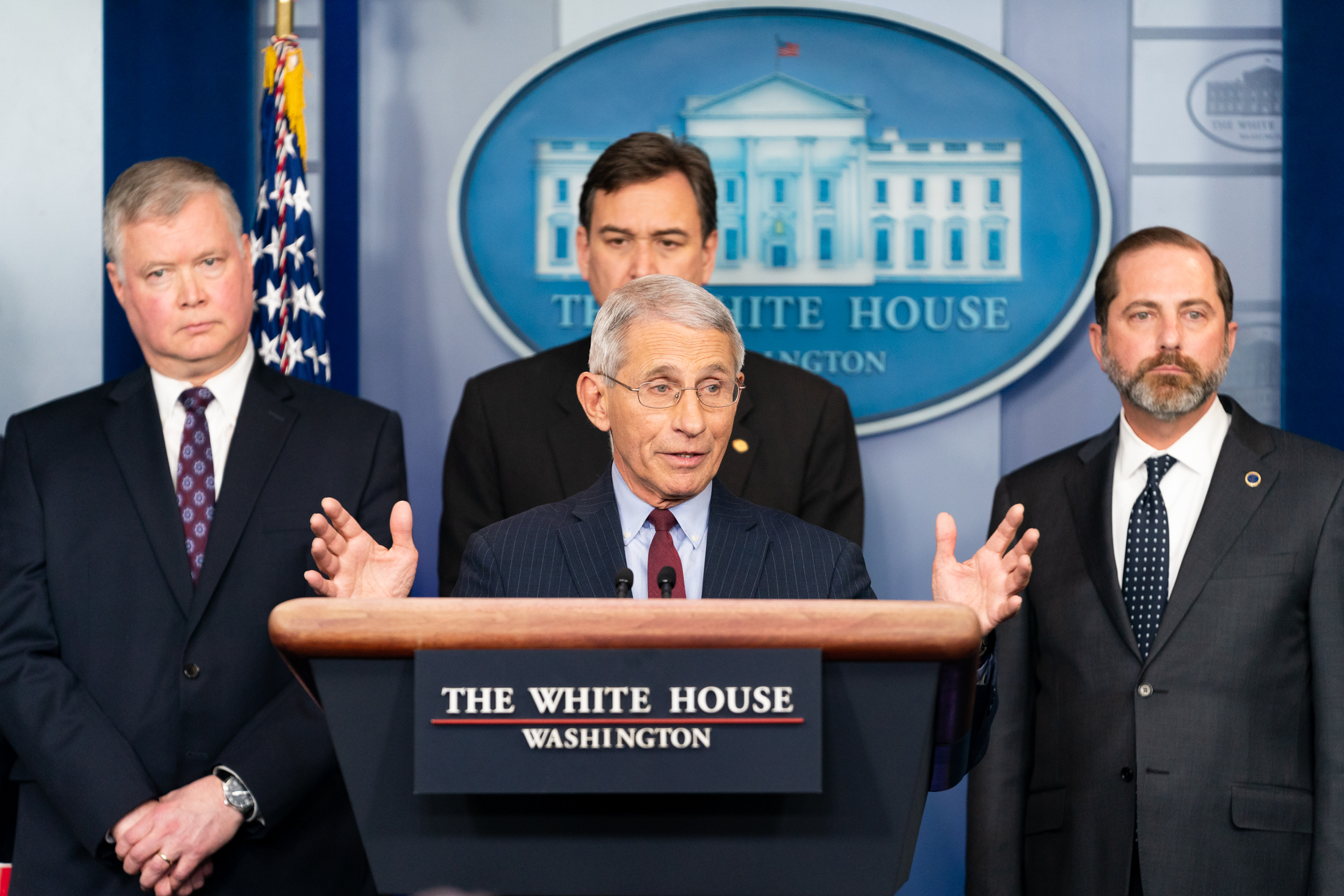When was the last time we had some good governance? Not perfect governance, mind you, such a concept occupies the same theoretical plane as world peace and the meetingless office. I’m just speaking of competent leadership, of public servants doing nothing more than their jobs. Maybe you’d point to the sober-minded direction of George H.W. Bush, the budget-balancing charm of Bill Clinton and the moral authority of Barack Obama. The older and more conservative among us might cite Ronald Reagan at the Berlin Wall or George W. Bush in his address to Congress after the 9/11 attacks. Many, I’m sure, cannot remember a politics that didn’t demand outrage, that comforted instead of demoralized.
Until recently, my own feelings fell along the same lines. I thought the days of good governance were behind us forever. I thought bipartisanship was quaint and collective action a pipe dream. I thought our leaders would always put party over country and self over party. And you know what? I thought wrong.
Two illustrations — one of humility and one of courage. For the first, we look to the Democratic primary and to Sen. Bernie Sanders. His was always a long-shot bid, and though his campaign survived a heart attack, a surging Sen. Elizabeth Warren and a decidedly outside-the-mainstream appeal, by the end of March it seemed that his path to the presidency had narrowed to a close. As in 2016, Bernie was faced with a decision: Drop out to bring the party together or stay in to push progressive policies for as long as possible. Against Clinton, he elected to continue his campaign far past the point of viability, cementing his ideas in the common consciousness but (depending on whom you talk to) damaging the nominee in the process. This time around, Bernie chose otherwise and endorsed Biden far earlier and far more enthusiastically than expected. Some supporters weren’t happy, but he didn’t appear to care. The senator put his ego aside in exchange for significant and ongoing input into the platform, representing a victory for the left and the center. It’s not easy to admit defeat, but, when it counted most, Bernie demonstrated a graciousness, maturity and selflessness that should be applauded. Come November, we will thank him for it.
For the second case, we look to the country’s governors. In the absence of a robust federal response, the majority of our state executives acted quickly, decisively and with no small amount of political bravery. From Gavin Newsom to Larry Hogan, Jay Inslee to Mike DeWine and Gretchen Whitmer to Charlie Baker to Andrew Cuomo, liberals and conservatives alike took the drastic measures necessary to contain the spread of coronavirus. To be sure, not everyone rose to the moment. Eight Republican governors have yet to issue stay-at-home orders, but most performed laudably when the stakes were highest. As Washington flailed and lawmakers bickered, it is no exaggeration to say that these men and women saved millions of lives.
Maybe I’m being naive. Politics is a contact sport; we are factional creatures, and for all the ways coronavirus will transform society, I doubt that will change. The admirable actions of the many do not excuse the misguided actions of the few, but in these uncertain times, it’s comforting to see that the worst tragedies can still bring out the best in our communities, in our elected officials and in ourselves. With catastrophe comes clarity, and it is clear now that the rumors of an America too beset by partisanship to function have been greatly exaggerated. It is clear now that the national spirit is yet alive, and the system doesn’t have to fail. Good governance is not a relic of the past. Tribalism is not the law of the present. Leadership is possible, compromise is achievable and the grown-ups are still in the room.
Contact Sean Casey at spcasey ‘at’ stanford.edu.
The Daily is committed to publishing a diversity of op-eds and letters to the editor. We’d love to hear your thoughts. Email letters to the editor to [email protected] and op-ed submissions to [email protected].
Follow The Daily on Facebook, Twitter and Instagram.
